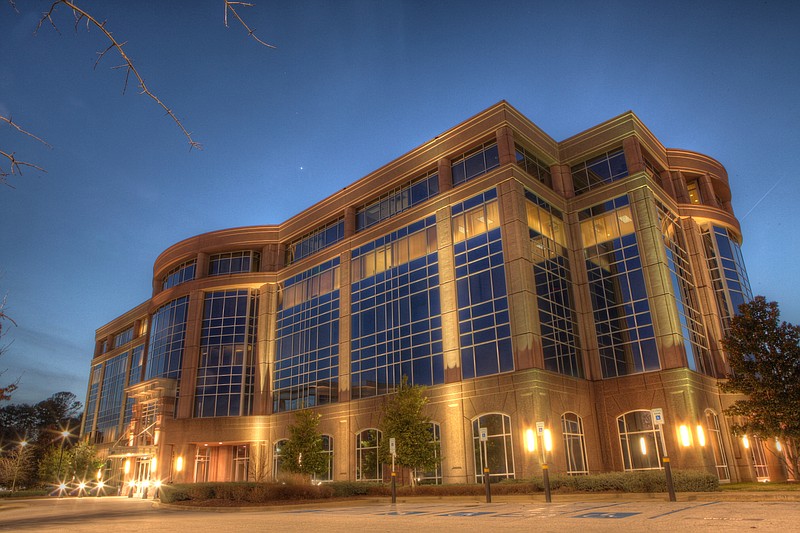Chattanooga-based mall operator CBL exercises exchange right
Chattanooga-based shopping center operator CBL & Associates Properties Inc. on Wednesday announced that its wholly-owned subsidiary, CBL & Associates Holdco II LLC, had exercised its optional exchange right with respect to all of the $150 million aggregate principal amount of the issuer's 7% exchangeable secured notes due 2028.
The issuer has notified holders that the exchange date will be Jan. 28, 2022, and the settlement date for the exchange will be Feb. 1, 2022, according to CBL.
Under the terms of the indenture governing the exchangeable notes, the issuer has until Jan. 31, 2022, to determine whether holders shall receive shares of CBL common stock, cash or a combination of both on the settlement date, the company said. But the issuer currently expects to deliver shares of CBL common stock.
Banks drop penalties for overdraft charges
Capital One said on Wednesday it would stop charging retail customers overdraft fees, making it the latest bank to either eliminate or ease the much-maligned charges infamous for turning $3 coffees into $38 gotchas.
Overdraft programs ensure that a bill will be covered and that purchases won't be denied when spending exceeds a consumer's account balance. Initially marketed as a convenience, the fees have proliferated over the past quarter-century and have become known as an aggressive way to siphon money from consumers.
But over the past year, more banks have begun introducing services that provide customers with a bit of wiggle room when they enter overdraft territory.
In May, Ally Bank said it would eliminate its $25 overdraft fee, giving customers six days to get in the black again before it potentially limits how they use their accounts. A number of other banks, like Bank of America and PNC, are taking smaller but still notable steps that include grace periods and small short-term loans - if users qualify.
Tesla headquarters relocates to Texas
Tesla said it has officially moved its corporate headquarters from Silicon Valley to a large factory under construction outside of Austin, Texas.
The company made the announcement late Wednesday in a filing with U.S. securities regulators. CEO Elon Musk had said at the company's annual meeting in October that the move was coming.
The filing said the relocation from Palo Alto, California, to what Tesla calls a "Gigafactory" on Harold Green Road near Austin was done Wednesday.
In U.S. regulatory filings at the end of last year, Tesla said it had about 71,000 employees worldwide. Company news releases in 2020 said about 10,000 work at the Palo Alto headquarters and 10,000 are employed at its factory in Fremont, California.
It wasn't clear if all of the headquarters employees would be required to move. A message was left Wednesday seeking comment from Tesla, which has disbanded its media relations department.
Wedbush analyst Daniel Ives said in October that he expects some of the 10,000 employees in Palo Alto won't want to leave the Bay Area, but says a large number will, due to Austin's lower cost of living. He said he thinks Tesla will give many the option of staying, but expects 40% to 50% to make the move.
GM expects to return to normal by end of 2022
Citing an improved supply of automotive computer chips, General Motors raised its financial guidance Wednesday and said it expects to return to a normal production rate by the end of next year.
Chief Financial Officer Paul Jacobson told investors on a virtual chat with Credit Suisse that the company has seen improvement in the fourth quarter on costs and sales volume as demand for its vehicles remains strong.
Nearly all automakers, including GM, have been hit by a global semiconductor shortage, which began late last year when chipmakers shifted production to consumer electronics after auto plants were closed due to the pandemic. When the auto plants came back, chip makers didn't shift production back to auto chips, which unlike chips for computers and games, have to withstand extreme temperatures and rattling on the roads.
Jacobson said GM now sees pretax earnings for this year of around $14 billion, up from previous guidance of $11.5 billion to $13 billion. Net income for the year is expected to be around $10 billion, GM said in a regulatory filing.
- Compiled by Dave Flessner
